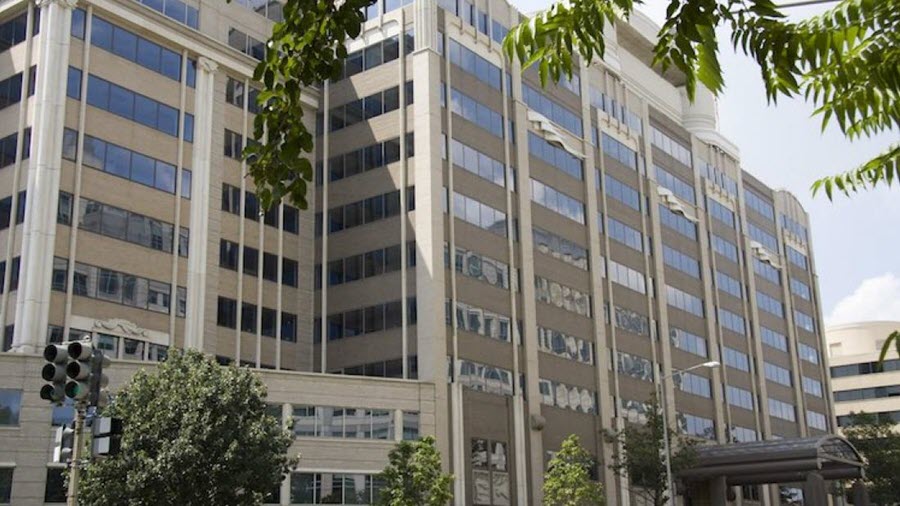FCC Opens All of 6 GHz Band for Unlicensed

The smarter way to stay on top of the multichannel video marketplace. Sign up below.
You are now subscribed
Your newsletter sign-up was successful
The FCC has voted unanimously to allow the entire 1200 MHz of the 6 GHz band to be shared with unlicensed WiFi, the FCC's latest move in freeing up more spectrum for connecting 5G in-home devices--video streaming, video calls--and connecting IoT devices to the internet.
Related: NAB Says FCC Spectrum Plan Could Hurt ENG at Crucial Time
That came at the FCC's April 23 public meeting-by-teleconference.
Related: FCC Gets Together, Apart in Age of COVID-19
In 850 MHz of the band, the FCC will allow standard power unlicensed use under an automated frequency control (AFC) system to protect incumbent users. The entire band can be used for indoor unlicensed use at very low power without AFC, and the FCC is proposing a new class of devices that can operate indoors and outdoors across the entire band.
Unlicensed fans WiFi Forward has said that opening up the GHz band. combined with the FCC's plan to free up 5.9 GHz spectrum, also for unlicensed WiFi, will add at least $183.44 billion to the U.S. economy over the next five years.
Cable operators supported the proposal, while broadcasters argued for protecting the electronic news gathering (ENG) already using the band by reserving 80 MHz for them, saying there was too much risk of harmful interference to that even-more-crucial service in a time of pandemic.
The smarter way to stay on top of the multichannel video marketplace. Sign up below.
FCC engineers have concluded that the band can be shared and ENG protected, with the conditions the FCC has imposed, and the FCC commissioners agreed.
FCC commissioner Michael O'Rielly called it "a fantastic day for unlicensed services and the millions of Americans who use them." He said that other than the 5.9 GHz slice, no other spectrum provided as great an opportunity given its proximity to the 5 GHz band that currently carries most of the WiFi load.
He said he strongly disagreed with those who said unlicensed didn't need the entire band. In addition to broadcasters wanting a sliver reserved for ENG, wireless companies had suggested auctioning some of the upper portion of the band for licensed use.
"Today’s action is also very timely, as the COVID-19 pandemic has demonstrated the importance of our WiFi systems in keeping those in isolation connected to the outside world," he said.
Related: Conservatives Push for All 6 GHz to Be Freed Up For Unlicensed
FCC chair Ajit Pai noted the pandemic had changed nearly every aspect of daily lives, with WiFi allowing for distance learning and virtual telehealth, and "stream Tiger King on Netflix."
He said it was a bold step to increase the supply of WiFi spectrum, increasing midband spectrum for unlicensed by almost a factor of five. He said the item would help promote IoT but also insure incumbents are protected from harmful interference.
FCC commissioner Brendan Carr said that the pandemic may give a sense of what trasnformative innovations freeing up that spectrum could unleash, including two-way video connections to help students and teachers interact or virtual reality shopping from the safety of home.
Commissioner Jessica Rosenworcel said the pandemic has ushered in remote work as never before, and WiFi has never been more important. "[W]ith this decision on unlicensed spectrum we do well by the law, we add more permissionless airwaves to the wireless economy, and we expand the democratizing force of having more WiFi in more places," she said, adding an "amen."
“Even for those who can’t afford the new equipment that will take advantage of the new spectrum and the latest iteration of WiFi, speeds for their devices should increase as existing WiFi traffic moves to the new spectrum," said commissioner Geoffrey Starks. "Low-income consumers purchasing discounted broadband plans will realize the full benefits of their subscriptions, as the WiFi channels within their homes become less congested and data flows more freely. The new spectrum is also expected to spur new efforts by many broadband providers, retailers, restaurants, and others that offer free public WiFi access at hotspots across the nation.”
Today the U.S. Federal Communications Commission forever altered the future of WiFi. Thanks to their action, a new generation of innovation is now possible," said Scott Harwell, SVP at Cisco. "With today’s vote, the FCC authorized 1200 MHz of 6 GHz spectrum to be opened for indoor WiFi use. This is a bold action, taken with deep knowledge of both the technology trajectory of WiFi and demand from consumers and businesses alike. Bold action is needed, as we are all discovering as we work from home, learn from home, and play at home – and stream more video than ever before. Those of us who helped build WiFi and who are responsible for its future send congratulations and thanks to the FCC. We promise to make good use of this resource.”
Contributing editor John Eggerton has been an editor and/or writer on media regulation, legislation and policy for over four decades, including covering the FCC, FTC, Congress, the major media trade associations, and the federal courts. In addition to Multichannel News and Broadcasting + Cable, his work has appeared in Radio World, TV Technology, TV Fax, This Week in Consumer Electronics, Variety and the Encyclopedia Britannica.

